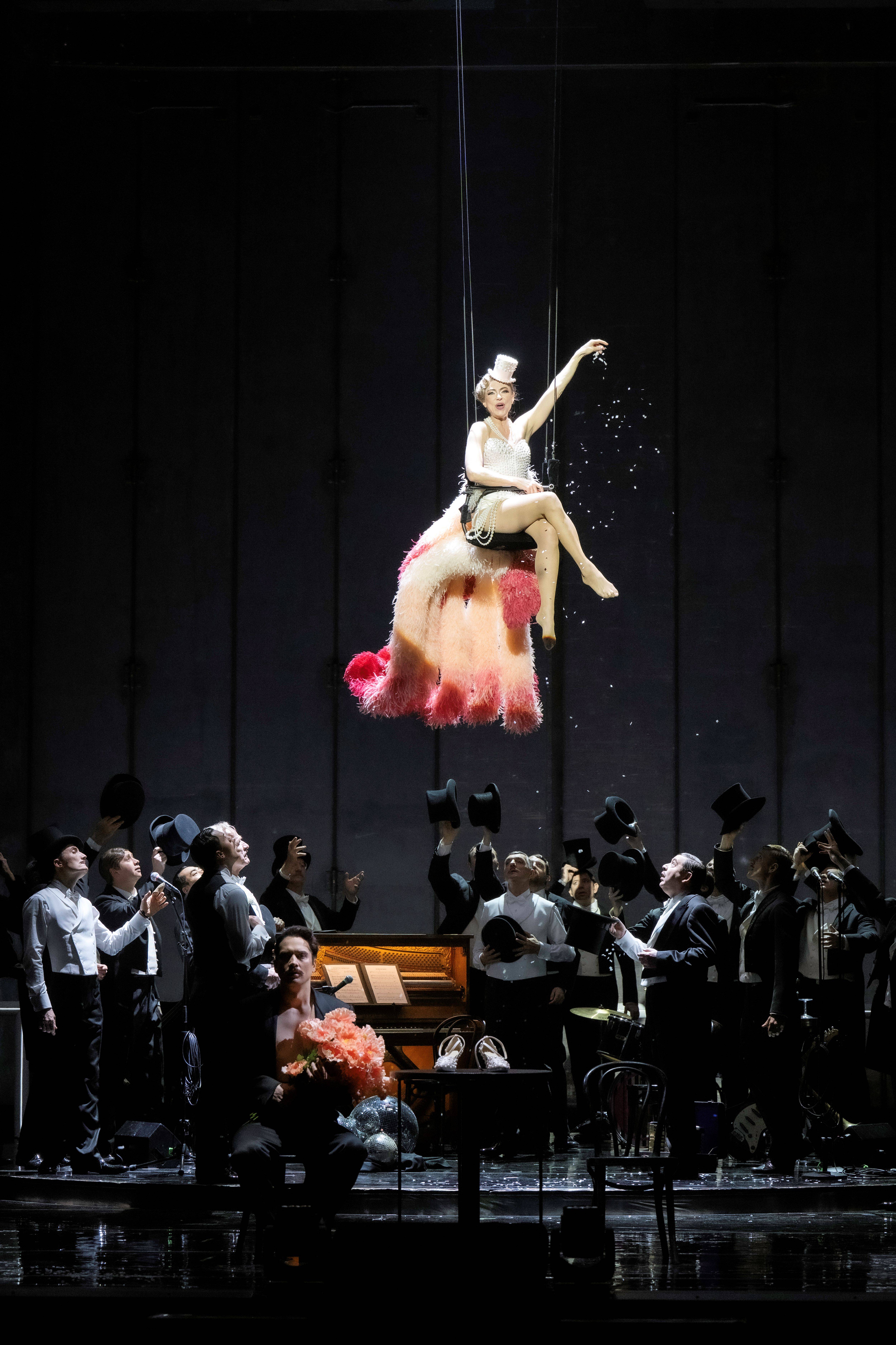5 good reasons to choose Die Csárdásfürstin (The Csárdás Princess)
Experience an operetta classic at the turning point of an era!
Do you know the one or other musical number from Die Csárdásfürstin? Even if you don't, trust us: one hit follows the next. Experience an operetta classic that was unmistakably born in a time of great societal upheaval. Kálmán’s composition captivates with its wealth of rousing melodies, striking dramatic accents, and exhilarating rhythmic energy. Before and during the outbreak of World War I—the first great catastrophe of the 20th century—Emmerich Kálmán and his librettists, Leo Stein and Béla Jenbach, created a work that is both melancholic and wistful yet equally full of fiery passion. Now, this masterpiece is being reinterpreted for a fresh new experience.
Join the ensemble on an emotional rollercoaster!
A simple love story between social classes becomes the catalyst for the collapse of an entire societal order. Heartache and champagne-fueled joy go hand in hand, raising questions about different life choices across generations and their mutual acceptance.
Take a look back to better understand the present!
Watch people trying to stand by each other—but failing. Die Csárdásfürstin is often called the operetta of farewells, and it begins with the farewell performance of the celebrated chansonette Sylva Varescu at the Budapest Orpheum. We all know this feeling—one day, we may realize that something must come to an end for something new to begin. Experience an evening that unfolds through memories—memories in which some things are forgotten while others grow larger than they once were. We have all felt this before! Music theater is the perfect place for such reflections, as time flows differently here than in the world that surrounds us every day. In this performance, for a few hours, the ticking of the clock's second hand is replaced by the beating of the heart.
Reflecting on a World in Turmoil
Who hasn’t asked themselves this question?: “Do you know how long the world will keep turning? Will it already be too late tomorrow?”—so goes the refrain of one of the operetta’s most famous songs. It highlights the tension between an uncertain future and the urge to embrace the present even more. This operetta reminds us to seek and savor life in the here and now.
Experience an artistically outstanding team—on and off stage
Johannes Erath’s visually striking and almost surreal productions have made him one of today’s most sought-after opera directors. For him, this marks a joyful return to the Volksoper, where he once played the violin in the orchestra many years ago.
At the conductor’s podium stands Tobias Wögerer, a rising star recently honored with the Austrian Music Theater Award. The exceptional ensemble of operetta artists includes Annette Dasch, Ursula Pfitzner, Daniel Schmutzhard, Alexandre Beuchat, Regula Rosin, Roland Koch, Juliette Khalil, Lukas Watzl, and Jakob Semotan—along with five Feri Bácsis (Marco Di Sapia, Karl-Michael Ebner, Daniel Ohlenschläger, Johannes Deckenbach and Kurt Schreibmayer).
With alternating casts, audiences are invited to return and experience the performance multiple times.
